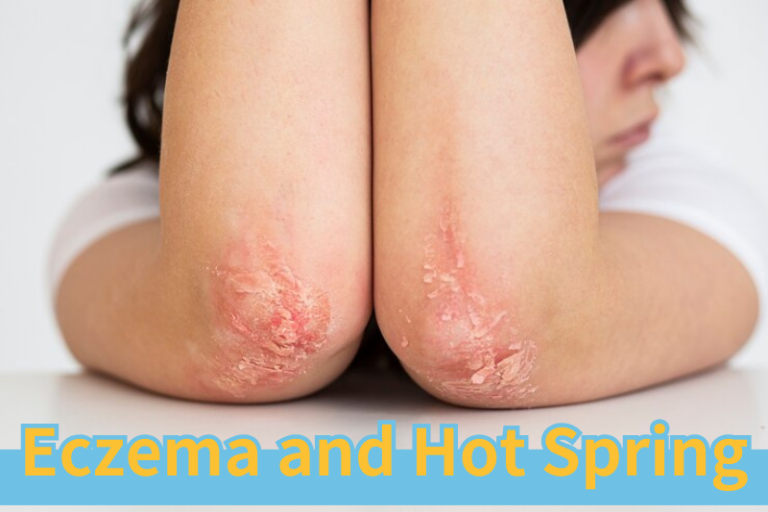Hidden Content
Hidden content
Hidden Content
Hidden content
BLOG/
Should Eczema Patients Soak in Hot Springs?

Some patients asked, “I have eczema; should I soak in hot springs?” This is a common question, especially as many people seek hot spring therapy to soothe skin issues. Here are some professional insights to help you understand the relationship between eczema and hot springs.
Eczema and Dry Skin
The answer is to avoid soaking in hot springs as much as possible. Eczema patients typically have dry skin, meaning their skin barrier function is weaker and unable to retain moisture effectively. The heat and mineral content of hot spring water can adversely affect this type of skin.
Loss of Skin Oils
- The heat from hot spring water can quickly wash away the natural oils on the skin’s surface, which are crucial for protecting the skin and preventing moisture loss.
- When the skin loses these oils, it can lead to increased dryness, which may trigger itching and redness.
Soaking Time
- Eczema patients usually cannot soak for long periods, as the heat and chemical components (like chlorine and other minerals) in the water can increase skin irritation.
- Even short soaks can further decrease the skin’s hydration, exacerbating eczema symptoms.
Increased Inflammation Risk
- Due to dryness and irritation, eczema patients’ skin is more prone to inflammation, which can prolong healing time and may even lead to infections.
- Inflamed skin becomes more sensitive, further impacting the patient’s quality of life.
The Impact of Sulfur
Hot springs often contain sulfur, which can pose problems for some individuals. Many eczema patients are sensitive to sulfur, which can lead to discomfort.
Skin Reactions
- While sulfur can promote blood circulation and metabolism, it may trigger allergic reactions in eczema patients.
- After a reaction, the skin may become red, swollen, and itchy, which is uncomfortable and can lead to scratching, further damaging the skin.
Delayed Reactions
- Allergic reactions may not appear immediately after soaking in hot springs; sometimes, they can take a few days to manifest. This makes it difficult for patients to connect the symptoms directly to the hot spring experience.
- Once an allergic reaction occurs, it may take several days to return to normal, impacting the patient’s daily life.
Individual Differences
- Not everyone is sensitive to sulfur, but individuals with a history of allergies or sensitive skin are at higher risk.
- If you have previously experienced allergic reactions to certain chemicals or environmental factors, consider undergoing an allergy test before soaking in hot springs.
Conclusion
Soaking in hot springs is not an ideal choice for eczema patients. For those with eczema, consider the following recommendations:
Seek Professional Advice:
- Before considering a hot spring soak, it’s best to consult a dermatologist for advice tailored to your skin condition and suitable treatment options.
- Doctors may provide personalized care recommendations based on your specific situation.
Look for Alternative Therapies:
- Consider other types of therapies, such as gentle moisturizers or skincare products designed for sensitive skin.
- For example, using moisturizers containing hyaluronic acid, glycerin, or plant extracts can effectively lock in moisture and soothe skin discomfort.
Maintain Skin Cleanliness and Hydration:
- Keeping the skin clean and moisturized is key to managing eczema. Choose fragrance-free, low-allergen cleansing products and avoid harsh soaps.
- After each bath, apply a moisturizer immediately to lock in moisture and form a protective barrier.
Hidden Content
Hidden content


